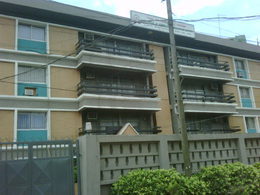Labour Shreds Nnaji’s Electricity Tariff Hike Plan
TOP government functionaries had a tough time selling the new electricity tariffs regime to Labour leaders yesterday at a town-hall meeting in Abuja where President of the Trade Union Congress, Peter Esele, shredded the proposal.
Curiously though, the Nigeria Labour Congress (NLC) was conspicuously absent from the forum, which had Minister of Power, Prof. Barth Nnaji, his Labour and Productivity counterpart, Emeka Wogu, Minister of State for Power, Darius Ishaku and Chairman, Nigeria Electricity Regulatory Commission (NERC), Dr. Sam Amadi, leading government’s charge.
Esele listed several fault lines in the proposed tariffs regime, concluding that the Federal Government had again put the cart before the horse in conceiving and implementing the policy.
For instance, the TUC president queried the rush to implement the new tariffs against the backdrop of erratic power supply nationwide.
He also faulted the argument that the new tariffs would make the power sector attractive to prospective investors, stressing that the same polemics had been deployed in not too distant past to vote billions of dollars to the power sector, which funds went down the drain.
Esele submitted that Nigerians would not pay for the illegality that the planned increment represented.
In his presentation, Amadi had assured that in the next 12 to 18 months, the power distribution companies would supply meters to most electricity consumers in the country.
Besides, the NERC chief explained that what would take off on June 1 was an adjustment in the tariff, which would make the poor pay less.
The poor in the electricity context, according to Amadi, is the least consumers of power.
He stressed that the rich and poor have nothing to do with their geographical location but the kilowatts of electricity they consume, which graduates them from one class to the other.
Although Nnaji admitted that the Federal Government has a record of trust deficit, he assured Nigerians that the current attempt to reform the power sector would be different.
He explained that upon the privatisation of the power sector in October this year, the power distribution companies would quicken metering in order to reduce losses of revenue.
But these arguments failed to persuade Esele, who stated: “One of the issues also has to do with the political leadership; sometimes they put the cart before the horse. NERC says it wants to make meters available for everybody so that we start paying for what we consume in 18 months. My question is: If right now I am not paying for what I consume, will I continue to pay illegal bills for 18 months before the meters are available?
“NERC says the new tariff will be pro-poor. I told the chairman that I would like to see how the tariff would be pro-poor. The Central Working Committee (CWC) of the TUC will be having a roundtable that will look at the nitty-gritty of the new tariff with NERC. The minister of power makes references to different various reforms. I will also like to raise some questions.
“Why would I not want regular power supply for 24 hours? I know Nigerians will give anything to ensure power supply for 24 hours. But why are Nigerians worried about the new tariffs? There is parable that says that when a snake bites a child, even a long lizard will scare him.
“The minister spoke about power reform, we have spent billions of dollars over the years on the power sector and the plan was to make it attractive to investors. If after spending billions of dollars and power sector is still not attractive, how do you want Nigerians to trust you on this new tariff regime?”
The TUC president noted that the Federal Government had cleverly desisted from stating its power supply target in order not to be held accountable for failure.
His words: “In the past, we used to hear 3,000mw, 4,000mw by December, but now, we no longer hear that and we have not been told why that was not achieved.”
Ishaku disclosed that the Federal Government had directed the National Power Training Institute of Nigeria (NAPTIN) to re-train disengaged electricity workers to prepare them for the eventual hand-over of the successor companies to Power Holding Company of Nigeria (PHCN) in October.
He stressed that those found with the right skills would be engaged by the new owners of the public power facilities.
In response to a question on the current status of PHCN, the minister stated: “PHCN has ceased to exist. It has been unbundled to make 18 successor companies while its workers have been redeployed to the successor companies.”
On the fate of the nation’s electricity workers when the privatisation process is concluded, Ishaku noted: “The current PHCN workers will be disengaged. Let me add here that we have effected a 50 per cent increment in the salary of our electricity workers and have since started paying.
“The idea is for their salaries and emoluments to be scaled up to give those of them who are highly skilled to have upper hands when the new owners come. We do not want our workers to be under-valued.
“We are hoping that the new owners would engage them on a higher skills basis. We are training them at the moment to make them highly relevant in the new scheme of things.”
Nnaji also explained why Nigeria currently supplies electricity to Niger Republic when its own citizens largely live in darkness.
His words: “We have two of our electricity dams that share boundaries with Niger Republic. We supply some electricity to that country as part of the agreement for us to use that dam. If we don’t supply them electricity, they may turn off the dams from their own end and that can be disastrous for us.”






